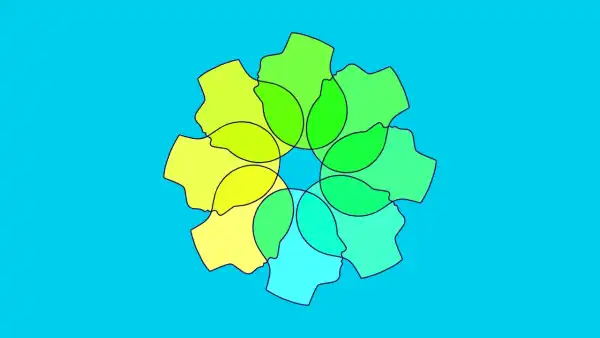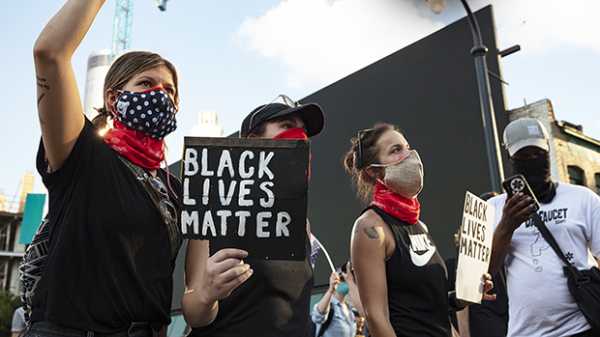
As protests, fundraising, and social media campaigns continue across the nation following the May 25 death of George Floyd, we’ve rounded up some resources for our devoted readers to become part of the solution.
In the wake of George Floyd‘s May 25 death by asphyxiation from the result of disgraced officer Derek Chauvin’s knee pressing into the unarmed Black man’s neck, millions across the country stood in peaceful solidarity with the Black Lives Matter movement. As protests have continued with added increase of police and law enforcement, the threat of Martial Law made by President Donald Trump, and the ongoing COVID-19 pandemic, citizens are trying to find resources and ways to donate, educate, and be a part of the solution against systemic and overt racism. HollywoodLife has rounded up a number of resources available, where you can donate, gain knowledge, and support protesters.
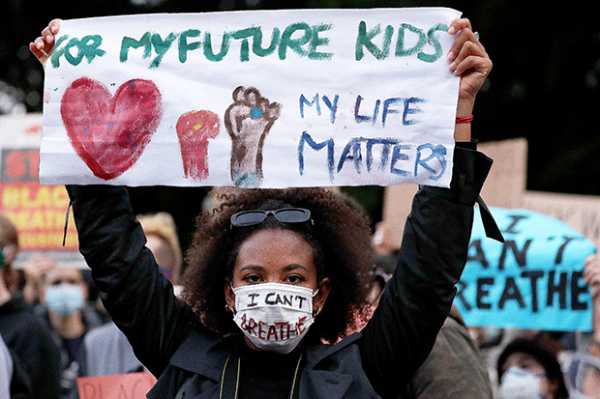
[REX/Shutterstock]Black Visions Collective: Founded in 2017, Minnesota’s Black Visions collective works toward a future were ALL Black lives are treated equally across intersections, including gender identity, sexual orientation, and more. “We aim to center our work in healing and transformative justice principles, intentionally develop our organization’s core ‘DNA’ to ensure sustainability, and develop Minnesota’s emerging Black leadership to lead powerful campaigns. By building movements from the ground up with an integrated model, we are creating the conditions for long term success and transformation.”
George Floyd Memorial Fund: Started after the death of George Floyd, the fund was created to benefit his family. Already, over 350 thousand people have donated. The initial goal was $1.5 million, but in the days since protests began across the country over $9.1 million has been raised.
Minnesota Freedom Fund: A collective working to pay the bail and bonds of wrongfully incarcerated people, the Minnesota Freedom Fund has received a lot of support from Minnesota communities and citizens who want to protect protestors and allies. Due to immense support, the organization has put a pause on donations, but they are encouraging others to support more organizations nationally and in the state of Minnesota.
National Bail Fund Network: You can search the full directory of bail funds by state to find where you can donate to ensure protestors are able to get back to their activism. The organization, “works with community bail funds that have been established across the country to counter the impact of mass incarceration as well as those created to meet the needs of specific communities or in response to specific organizing actions.”
Campaign Zero: An organization working to end cyclical police brutality in America, Campaign Zero bases its efforts on research-based analysis to help combat increasing police brutality and injustice. On the organization’s home page, activists can check out ways to impact their community through training, demilitarizaiton, and independent investigations and prosecutions.
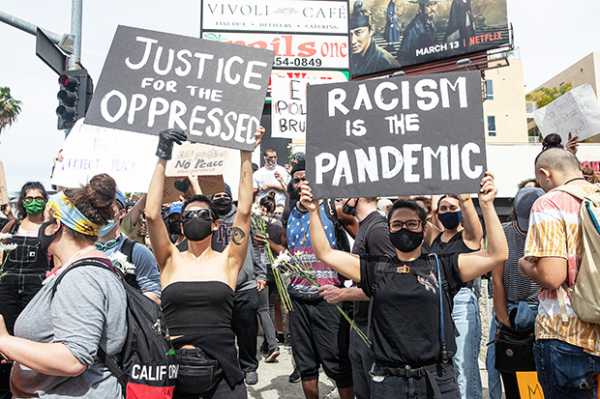
[REX/Shutterstock].Unicorn Riot: Unicorn Riot is a decentralized, educational, non-profit media organization of artists and journalists who use their talents to expose the roots of “dynamic social and environmental issues through amplifying stories and exploring sustainable alternatives in today’s globalized world.”
Women For Political Change: WFPC “holistically invests in the leadership and political power of young women and trans & nonbinary individuals throughout Minnesota.” The organization has stood in firm solidarity with the ongoing protests in the state.
Covid-19 Mutual Aid Network – Los Angeles: As protests continue, the ongoing COVID-19 outbreak simultaneously persists. As such, the state of California has a coalition of grassroots organizations working to provide care to their most vulnerable communities. “We are immediately providing grocery and supply deliveries, and are preparing to expand this to other community support services like running errands, dog walking, childcare, caregiving, and mental health support for those impacted by the pandemic,” the organization’s mission statement reads.
NAACP Legal Defense Fund: The NAACP’s Legal Defense Fund is the premier, non-profit legal organization fighting for racial justice. “Through litigation, advocacy, and public education, LDF seeks structural changes to expand democracy, eliminate disparities, and achieve racial justice in a society that fulfills the promise of equality for all Americans. LDF also defends the gains and protections won over the past 75 years of civil rights struggle and works to improve the quality and diversity of judicial and executive appointments.” You can donate and sign the petition for Justice for George Floyd on their site.
Reclaim The Block: The Minnesota organization began in 2018 as an effort to divest from the police department and reallocate funds into communities that need it most. “We do not believe that increased regulation of or public engagement with the police will lead to safer communities, as community testimony and documented police conduct suggest otherwise,” their mission statement reads.
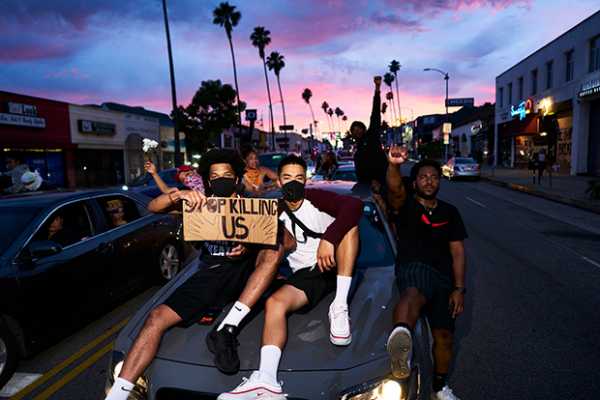
[REX/Shutterstock].National Bail Out: An intersectional organization working to reunite family members who have been incarcerated. “The National Bail Out collective is a Black-led and Black-centered collective of abolitionist organizers, lawyers and activists building a community-based movement to support our folks and end systems of pretrial detention and ultimately mass incarceration. We are people who have been impacted by cages — either by being in them ourselves or witnessing our families and loved ones be encaged. We are queer, trans, young, elder, and immigrant,” reads the organization’s mission statement.
Brooklyn Community Bail Fund: The Brooklyn Community Bail Fund is a non-profit that ensures those who would normally be incarcerated pretrial are secured their freedom. “We are committed to challenging the criminalization of race, poverty and immigration status, the practice of putting a price on fundamental rights, and the persistent myth that bail is a necessary element of the justice system.”
The Loveland Foundation: Established in 2018 by Rachel Cargle, The Loveland Foundation seeks to provide mental health resources for Black young women and girls. “Loveland Foundation is committed to showing up for communities of color in unique and powerful ways, with a particular focus on Black women and girls. Our resources and initiatives are collaborative and they prioritize opportunity, access, validation, and healing. We are becoming the ones we’ve been waiting for.” During this fractured time, especially, it is vital that the mental health of the Black community is given attention and care.
The ACLU: Over the decades, the American Civil Liberties Union has transformed and brought attention to dire situations in the United States. Today, they are working to protect the most vulnerable communities during the COVID-19 outbreak, as well as raise awareness for an independent investigation into the murder of George Floyd.
The Equal Justice Initiative: The EJI is dedicated to criminal justice reform, racial justice and public education. The social justice organization uses virtual experiences, data, and remembrance projects to affect change. They also have one memorial and a museum — The Legacy Museum in Montgomery, AL, which “explores the history of racial inequality and its relationship to a range of contemporary issues from mass incarceration to police violence” and The National Memorial for Peace and Justice, which “provides a sacred space for truth-telling and reflection about racial terrorism and its legacy.”
Sourse: hollywoodlife.com




